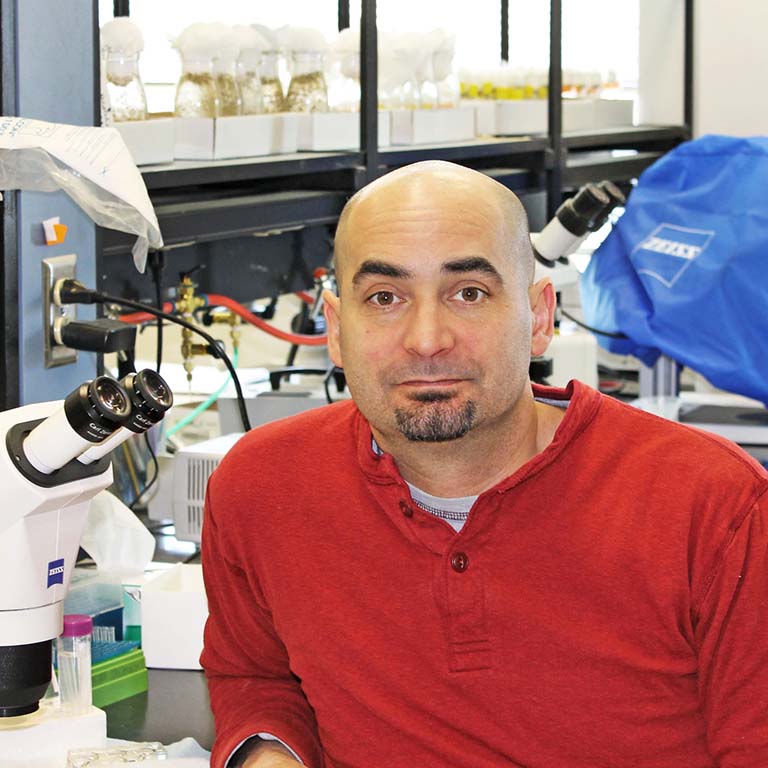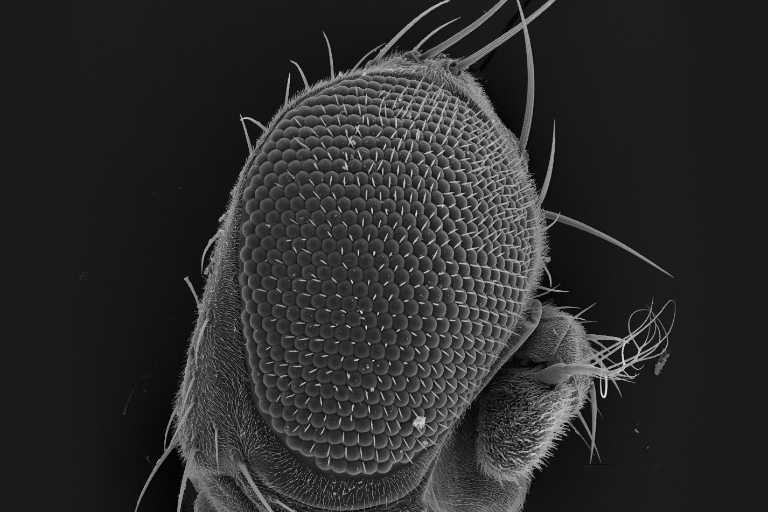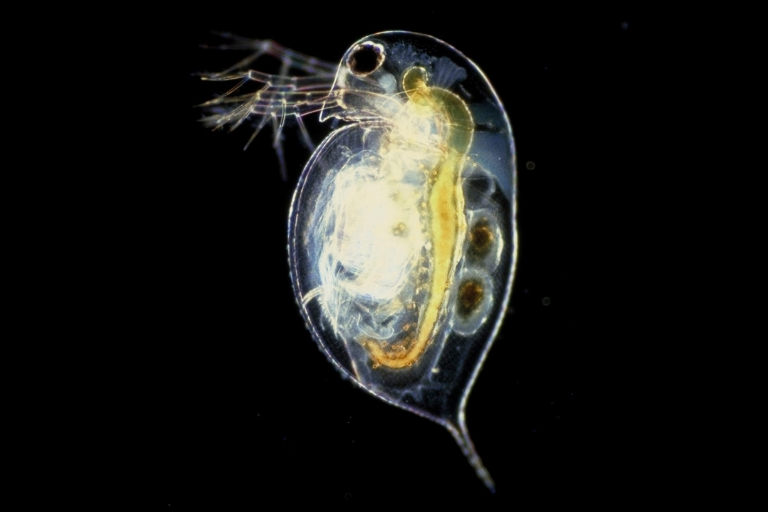Two NSF grants to Andrew Zelhof will support the use of arthropods to advance research on basic biological mechanisms, including vision.
A total of $1.47 million from the National Science Foundation has been awarded to Indiana University to advance research aimed at improving scientists' ability to understand basic biological mechanisms in humans—as well as other species—using arthropods.
The support comes from two grants. The first is $750,000 to study the cellular and molecular mechanisms behind the evolution of insect eyes—such as a fused array of light-catching photoreceptors, as seen in flour beetles, or Tribolium, or an open array of photoreceptors, as seen in the eyes of fruit flies, or Drosophila. The second is $720,000 to transform Daphnia pulex, or "water fleas"—a common micro-crustacean—into a model species for studying how genes interact with their environment.
The primary investigator on the first award is Andrew Zelhof, an associate professor in the IU Bloomington College of Arts and Sciences' Department of Biology and director of the Drosophila Genomics Resource Center at IU. Zelhof is also co-investigator on the second award, whose primary investigator is Michael Lynch, a professor at Arizona State University and former member of the IU faculty. The $720,000 to IU is 40 percent of the second grant's $1.8 million total.
"These awards are related in their use of model species to illuminate the big questions in basic biology," Zelhof said. "In creating new genetic tools for Daphnia, we aim to bridge a gap between molecular and cellular genetics and understanding the emergence of new physical traits in response to their environment. In studying insect eyes, we're seeking to address a key question in evolutionary and developmental biology, which is how evolutionarily conserved cellular processes are modified to produce adaptive changes despite the constraints required to construct functional tissue."



 The College of Arts
The College of Arts